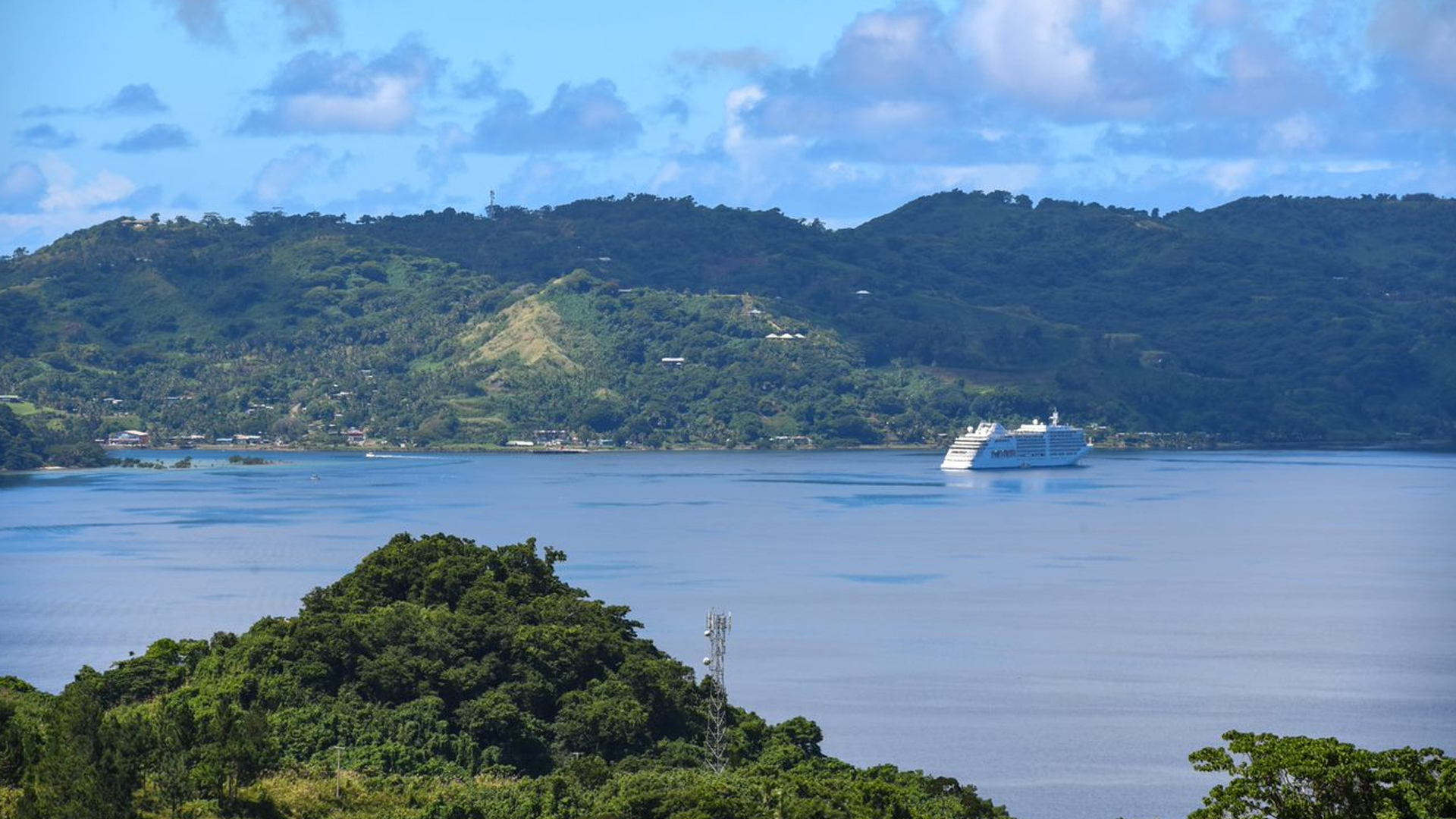
Suva, Fiji, July 8, 2021– The financial impact on more than 1,500 Fijian businesses, which were among the hardest hit by Tropical Cyclone (TC) Yasa, has been estimated at FJD$25 million, while only a fraction were insured against the disaster, new research has revealed.
A survey by the Ministry of Commerce, Trade, Tourism and Transport (MCTTT) and the International Finance Corporation (IFC) of 1,554 Fijian businesses showed that while 92 percent were affected by the cyclone when it struck in December 2020, only one percent had cyclone insurance. Tropical Cyclone Yasa – a Category 5 – was the strongest tropical cyclone in the South Pacific since Winston in 2016.
"The recovery of micro, small and medium sized enterprises and support for women entrepreneurs are both critical to the Fijian economy, particularly at a time like this when we are also dealing with the human and economic toll stemming from COVID-19," said Permanent Secretary for Commerce, Trade, Tourism and Transport, Shaheen Ali. "Studies such as this further strengthen our ability to provide more targeted responses – whether fiscal or technical – in partnership with our stakeholders."
The Fiji TC Yasa Business Survey, conducted with the support of the governments of Australia and New Zealand, found women-owned micro-businesses were most in need of targeted assistance as they were likely to face the greatest challenges in growing their businesses in the wake of the cyclone's impacts.
"The resilience of the Fijian people is well known, but in these times it's important that we use targeted assistance to help those who need it most," said John Feakes, Australian High Commissioner to Fiji. "Surveys such as this will help guide support after a future disaster, helping the private sector to rebound faster."
Prior to TC Yasa, 80 percent of the businesses surveyed were saving profits or growing. Only two percent were in decline. After the cyclone and during the survey period, 29 percent were hibernating or had permanently closed, and only 47 percent were fully functioning.
"Fiji's economic recovery is dependent upon a resilient and thriving MSME (micro, small and medium sized enterprises) sector," said Jonathan Curr, the New Zealand High Commissioner to Fiji. "We are delighted to see increased strength of advisory services and acknowledge the positive impact initiatives such as Business Link Pacific & MSME Fiji have in supporting recovery strategies."
The Fiji TC Yasa Business Survey also contains some key recommendations, including that businesses, whether informal or formal, should receive advisory support and training on recovery strategies and building resilience. It cited MSME Fiji, the Fiji Commerce and Employers Federation and Business Link Pacific, as examples of organizations that could provide appropriate and valuable assistance.
It was also recommended businesses be given access to cash and working capital, that a moratorium on concessional loan repayments for MSMEs be considered, and businesses receive guidance on insurance programs to ensure they are better protected in the future. The survey also recommended improving supply chain linkages between Viti Levu and Vanua Levu to increase trade and to assist in the economic recovery of the Northern Division.
"Fiji's economy is resilient and has overcome many challenges in the past, but this is certainly one of the most trying times the country has seen as it responds to the devastating impact of weather events as well as the COVID-19 pandemic," said Deva De Silva, IFC Resident Representative to Fiji, Kiribati, Samoa, Tonga and Tuvalu. "The country's economic recovery from the pandemic as well as the natural disasters must be well thought out and studies like this can be valuable tools for helping the government and development partners respond appropriately, including in terms of providing targeted assistance."
Of the businesses surveyed, 86 percent were deemed to be micro-businesses, all of which had turnovers not exceeding FJ$50,000 per year. The overwhelming majority were based in Fiji's Northern Division.
Fiji Partnership
IFC's work in Fiji is supported by the governments of Australia and New Zealand under the Fiji Partnership to unlock private sector investment, promote sustainable economic growth and boost shared prosperity in Fiji.
About MCTTT
The Ministry of Commerce, Trade, Tourism and Transport (MCTTT) of the Fijian Government is responsible for formulating and implementing policies and strategies that create and facilitate growth in industry, investment, trade, tourism, transport, co-operative businesses, and micro and small enterprises. The MCTTT also has the mandate of enhancing metrology, standards, and consumer protection ensuring fair trade.
The responsibilities are also undertaken by the Ministry, including the Trade Commissions in Australia, New Zealand, China, North Americas, and non-resident for the Pacific Island Countries. The Ministry is further supported by seven statutory bodies: Consumer Council of Fiji, Investment Fiji, Film Fiji, Tourism Fiji, Real Estate Agents Licensing Board, Maritime Safety Authority of Fiji and Land Transport Authority. For more information, https://www.mcttt.gov.fj
About IFC
IFC—a member of the World Bank Group—is the largest global development institution focused on the private sector in emerging markets. We work in more than 100 countries, using our capital, expertise, and influence to create markets and opportunities in developing countries. In fiscal year 2020, we invested $22 billion in private companies and financial institutions in developing countries, leveraging the power of the private sector to end extreme poverty and boost shared prosperity. For more information, visit www.ifc.org.
Stay Connected
www.ifc.org/eastasia
www.twitter.com/IFC_EAP
www.youtube.com/IFCvideocasts
www.ifc.org/SocialMediaIndex
www.instagram.com\ifc_org
www.facebook.com/IFCeap
www.facebook.com/IFCwbg

Contacts
Stay Informed
Sign up to have customizable news & updates sent to you.